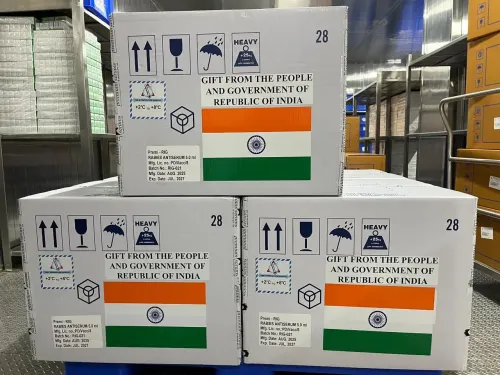Calcutta HC Refuses to Entertain PIL Regarding Foreign Nationals in Bengal Elections

Synopsis
Key Takeaways
- The Calcutta High Court rejected a PIL on citizenship verification.
- The Election Commission has sufficient checks in place.
- Concerns about foreign nationals in elections were raised.
- Citizens can challenge candidate nominations.
- Legislative changes cannot be mandated by the court.
Kolkata, April 14 (NationPress) The Calcutta High Court has declined to consider a public interest litigation (PIL) that claims the Election Commission of India (ECI) is not adequately performing citizenship verification for candidates in West Bengal.
A bench comprising Chief Justice T. S. Sivagnanam and Justice Chaitali Chatterjee (Das) acknowledged the ECI’s assertion that it has established sufficient checks and balances during the nomination scrutiny process. They noted that if a complete complaint is submitted, it would be duly investigated.
The bench pointed out that the ECI takes on its responsibilities once an election is declared, and when a candidate submits a nomination under the Representation of the People Act along with the corresponding rules, the verification of details will be performed.
“Given the ECI's responsibilities and the request made, we believe that a writ court cannot mandate the establishment of a new procedure by directing authorities to create a regulation,” the bench stated.
The petitioner argued that the matter of foreign nationals unlawfully acquiring Indian citizenship and engaging in the electoral process is particularly pertinent to the forthcoming West Bengal Assembly elections, anticipated to take place between March and April 2026.
Nonetheless, the bench, led by CJ Sivagnanam, concluded that any citizen is permitted to raise concerns regarding the validity of a candidate's nomination for elections to either Parliamentary or Assembly constituencies.
In disposing of the case, it was clarified that the petitioner sought the creation of a new process, which effectively resembles a legislative function that a court cannot undertake as per its constitutional powers.









